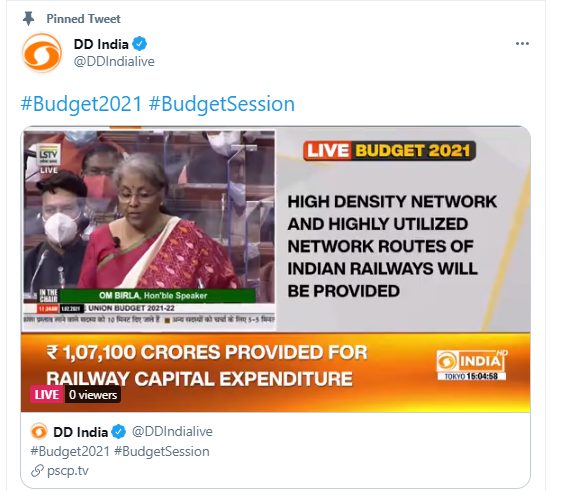
FM Nirmala Sitharaman presented her first paperless union budget and announced a slew of measures on healthcare and infrastructure to give an impetus to the Covid-hit economy. Union Finance Minister Nirmala Sitharaman presented the General Union Budget of 2021 on Monday. Dubbed as the most crucial Budget of India in recent years, the Budget has come in the backdrop of the largest gross domestic product (GDP) contraction India has suffered post-Independence due to the COVID-19 pandemic. India has been among the worst-hit major economies due to the virus-induced lockdown, with the economic growth contracting by a massive 23.9 percent year-on-year (YoY) in the June 2020 quarter, the first GDP contraction in over 40 years. There are only four occasions in India’s history when GDP growth has suffered a contraction: 1957-58 (1.2%), 1965-66 (3.7%), 1972-73 (0.3%) and 1979-80 (5.2%). The FM’s budget focused on higher spending, healthcare expenditure, infrastructure development and public sector bank privatisation, while no major income tax relief has been provided to the common man. Markets have surged nearly 4 percent particularly led by the private sector banks. Here are few post budget reactions from the India Inc.
Ravi S Raghavan – Tax Counsel from Majmudar & Partners Law Firm
The consolidation of securities laws and the proposed decriminalization under the LLP Act marks an important move. On the tax front, providing tax exemption for aircraft leasing companies that are set up in the IFSC has the potential to boost foreign investments. Reducing the timelines for reopening past tax cases will lead to reduced tax litigation however removing the allowability of depreciation on goodwill that had the blessings of India’s Supreme Court will be a major dampener for M&A transactions
Mr. Kamal Khetan, Chairman and Managing Director, Sunteck Realty
“The Union Budget has packed some great ideas and a definite direction for strong economic growth ahead, especially through infrastructure, capital expansion and banking and financial services. For real estate, the move to extend the tax holiday available for the purchase of affordable houses as well as for the affordable rental housing projects is a welcoming move as it would further strengthen the confidence among both developers and homebuyers. The move will certainly prompt more demand, especially among first-time buyers who generally fall in the lower and mid-income segments. Also, the extension of the tax holiday on affordable housing projects for developers by another year will increase the project launches in this segment as they would get additional time and resources. Apart from this, the mega infrastructure development and upgradation to be undertaken across India will add much value to the real estate sector.”
Mr. Rajesh Sharma, Managing Director, Capri Global Capital Ltd
“The Budget has clearly kept the focus on boosting economic growth. Emphasizing to make India self-reliant and strengthen the country’s position in the global economic landscape, the honorable Finance Minister has given systematic importance to the NBFC sector through a slew of measures that will ease the lending business. The reduction in the loan limit from Rs 5 million to Rs 2 million under the SARFAESI act for NBFCs, with a minimum asset size of Rs 100cr and above, would mean that the debt recovery can enforce the security interest for lower ticket size loans. This will help the NBFCs to improve their ability to recover smaller loans and strengthen the overall financial health. Allotment of 20, 000 crores for bank recapitalization and setting up an ARC to take care of NPAs of stressed banks and manage through alternative investment funds would securitize the irrecoverable loans. Extend the eligibility of erstwhile tax sop on a home loan by additional one year up to FY’22 is a welcoming support to de-bottleneck issues surrounding the affordable housing segment.”
";

